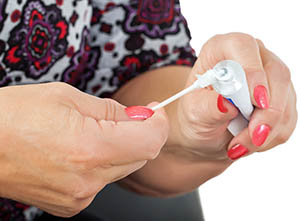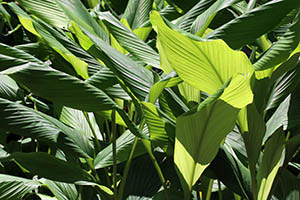Drug-resistant infections are expected to kill more people than cancer by 2050.1
Over 2 million people get antibiotic-resistant infections every year in America. And 23,000 die.
That’s because after decades of overuse, antibiotics have lost their power to fight infections. And the more they’re prescribed, the worse the problem is getting.

Even over-the-counter antibiotic creams like Neosporin are contributing to the rise of drug-resistant “superbugs.” And who hasn’t used Neosporin on a small cut or scratch? Most people don’t even give it a second thought.
If nothing changes, deaths from minor events like cuts, diarrhea and urinary tract infections could soon become everyday occurrences.
Maybe it’s time to take a step back and re-examine the natural cures that have been around for thousands of years. I’ve been studying Mother Nature’s cures and remedies for nearly three decades — and I’ve found she has an answer for just about everything, from coughs to cancer.
And if she can cure cancer, then preventing a simple cut or scratch from getting infected is child’s play for her.
The Benefits of Curcumin for Wounds
and Infections
One of my favorite natural wound healers is curcumin. It’s the active ingredient from the root of the turmeric plant.

I first discovered curcumin’s incredible healing power 20 years ago when I was in India studying Ayurveda. At 6,000 years old, it’s the oldest medical health care system in the world.
And curcumin is one of the cornerstones of Ayurvedic medicine.
Ayurvedic doctors consider it to be a cure-all. And science confirms they’re right.
More than 6,600 studies prove curcumin beats a long list of modern drugs. Including antibacterial ointments that end up doing more harm than good.
Curcumin prevents deadly infections and heals wounds in four ways:
1. Its antibiotic action kills bacteria to prevent infection. A
recent study found that curcumin killed 100% of MRSA within 2 hours. E.Coli was wiped out by 80%.2 A South Korean study found that curcumin not only killed bacteria on the skin, it also created a barrier that prevented further infection from entering a wound.3
2. It relieves inflammation. While inflammation is the first step toward healing, too much delays healing and results in scarring. Curcumin reduces inflammation by blocking two inflammatory enzymes (COX-2 and LOX).4
3. It relieves pain. Put away your pain reliever. Curcumin works as well as non-steroidal anti-inflammatory drugs (NSAIDs) — if not better. And without dangerous side effects.
One study showed that curcumin was an even more effective anti-inflammatory than aspirin. In this study of 12 different pain relievers, curcumin was the most effective. Aspirin and ibuprofen were the least.5
4. It helps form new skin cells to close the wound. In one study, wounds treated with curcumin closed completely within 11 days. Untreated wounds took over twice as long (23 days) to close.6
And a recent animal study found that curcumin boosts levels of transforming growth factor (TGF)-β1. This growth factor helps stimulate the development of new small blood vessels. This in turn, helps build new skin tissue.
Here’s What I Recommend…
Here’s what I recommend to help heal wounds and prevent infection. I’ve been using this paste on my family and myself for years:
- Mix 1-2 tsp ground turmeric with enough water or coconut oil to make a thick paste.
- Apply the paste to the wound and cover with a bandage. Let sit for at least 12 hours, and up to 24. Do this for three days.
To Your Good Health,
![]()
Al Sears, MD, CNS
1. Tackling Drug-Resistant Infections Globally. Jim O’Neill. May 2016.
2. Poonam Tyagi, Madhuri Singh, Himani Kumari et al. Bactericidal Activity of Curcumin I Is Associated with Damaging of Bacterial Membrane. PLoS One. 2015; 10(3): e0121313.
3. Mun SH, Joung DK, Kim YS, et al. Synergistic antibacterial effect of curcumin against methicillin-resistant Staphylococcus aureus. Phytomedicine. 2013 Jun 15;20(8-9):714-8.
4. Rao CV. Regulation of COX and LOX by curcumin. Adv Exp Med Biol. 2007;595:213-26.
5. Takada Y, Bhardwaj A, Potdar P, Aggarwal BB. Nonsteroidal anti-inflammatory agents differ in their ability to suppress NF-kappaB activation, inhibition of expression of cyclooxygenase-2 and cyclin D1, and abrogation of tumor cell proliferation. Oncogene. 2004;23(57):9247-58.
6. Panchatcharam M, Miriyala S, Gayathri V, Suguna L. Curcumin improves wound healing by modulating collagen and decreasing reactive oxygen species. Mol Cell Biochem. 2006;290:87-96.

